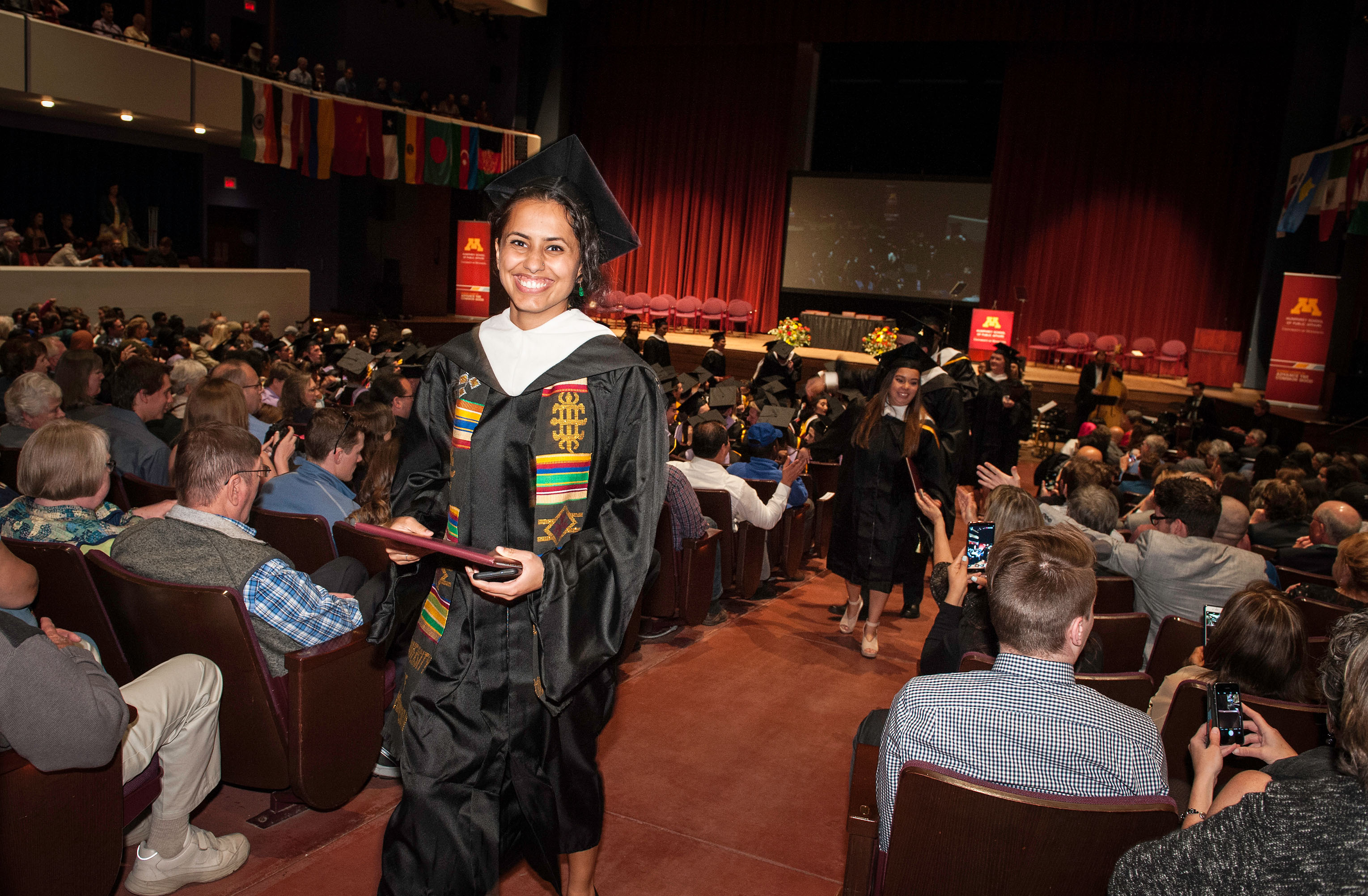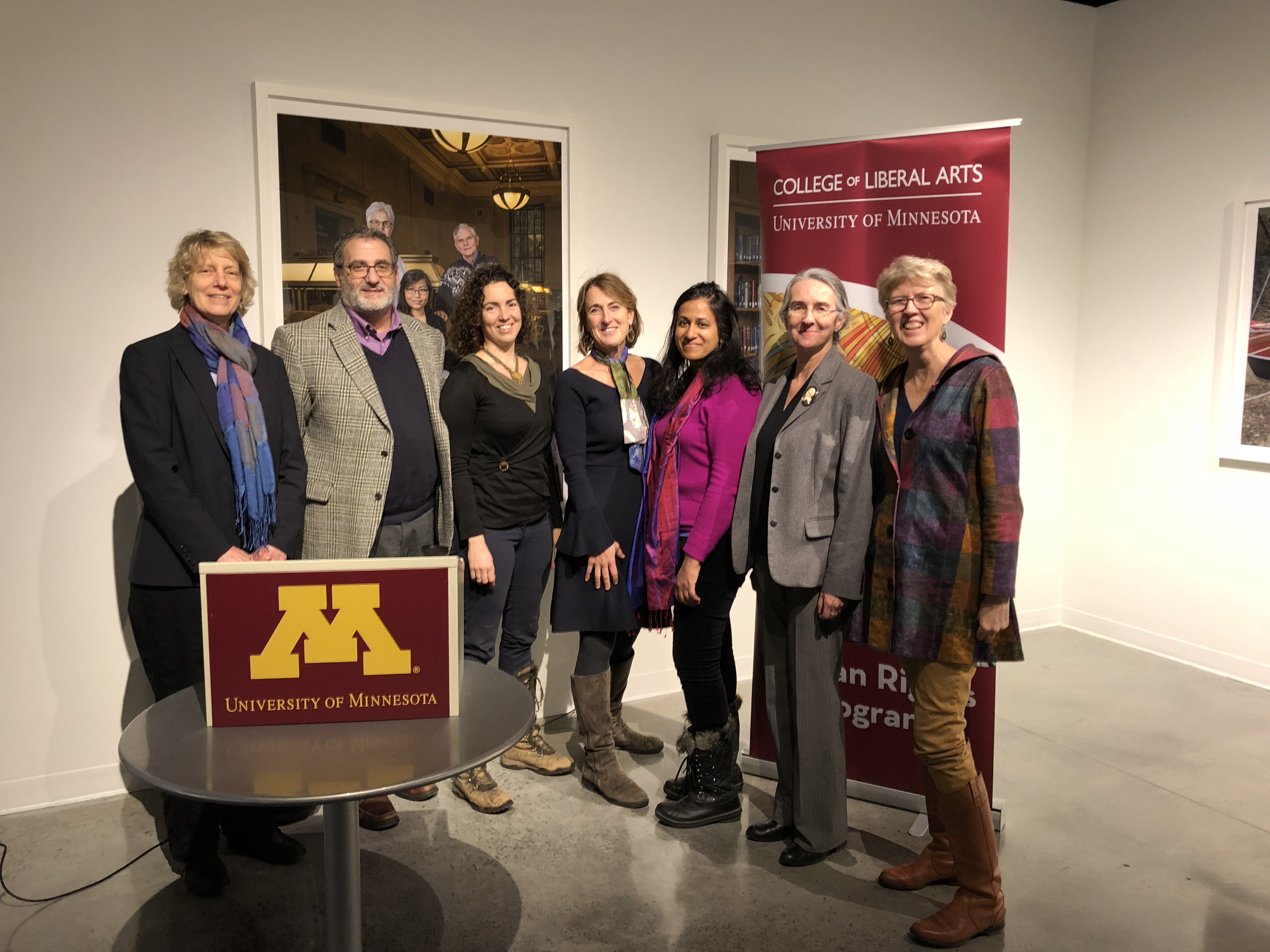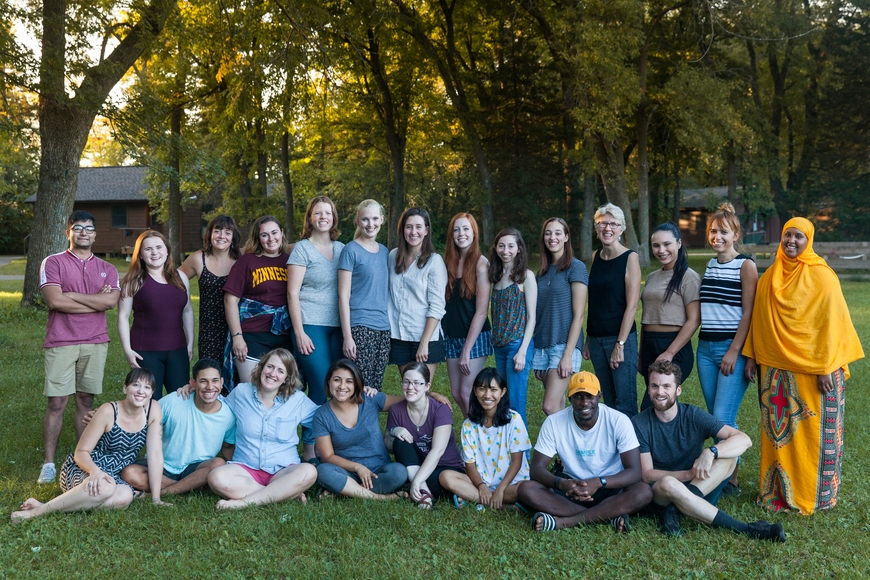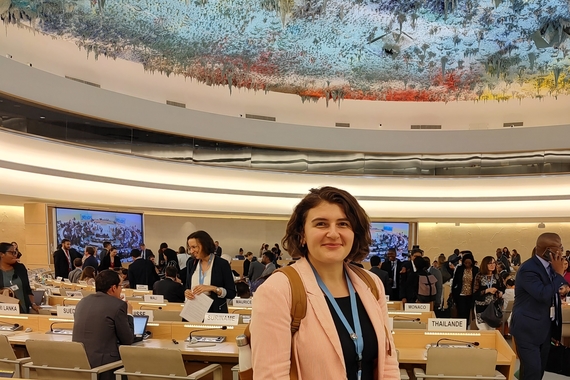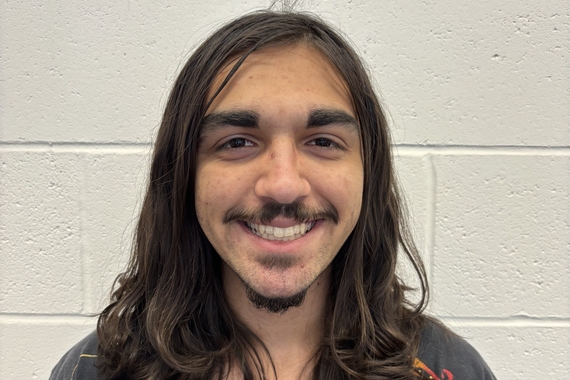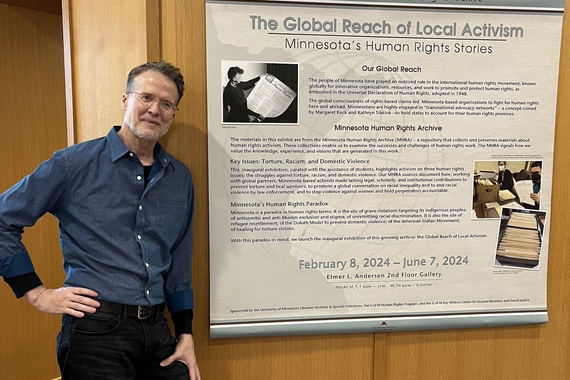The University of Minnesota Human Rights Program: A Year in Review
Dear friend of human rights,
As I reflect on this past year and the political and social landscape in which the protection of core human rights values emerges, falters, rebounds, and strengthens, I find myself heartened, hopeful, and confident. I am heartened by the tenacity of the movement of advocates worldwide – in the face of intense global challenges – who embrace and stand up for the core values of human dignity, fairness and equality laid out 70 years ago in the Universal Declaration of Human Rights. I am hopeful as I see our students at all levels – undergraduate, graduate, and professional – using their skills, ingenuity, and energy to plug into and bolster this human rights movement, and our faculty engaging in cutting-edge, interdisciplinary research enabling advocates to more effectively create real and sustainable change. I am confident that the work that we are doing here at “The Human Rights University” – great teaching, impactful research, capacity building, and public programming – is leading us into a future that is brighter, more inclusive, welcoming, and safe for all people.
These are some of the things The Human Rights University has accomplished in 2018, with your support:
Teaching the next generation of human rights scholars and professionals
Our students learn from the best interdisciplinary scholars in the fields of human rights law, policy, advocacy, and history, to name a few. Our students are:
- Analyzing human rights issues in all their complexity;
- Honing research skills that help us understand the causes of violence and how to defend human rights more effectively; and
- Graduating with degrees in human rights and going on to work as human rights professionals in NGOs, the U.S. Foreign Service, research centers, and in program evaluation.
Incentivizing and supporting impactful faculty and student research
Through the Human Rights Initiative research grants, we are supporting our faculty in innovative interdisciplinary research initiatives and encouraging meaningful student partnerships. This year, the Program supported many research initiatives, including:
- Engaging artistic representation with regard to issues of forced migration and displacement of Palestinians in the Galilee (Professor Sonja Kuftinec, Theatre Arts and Dance and Avigail Manneberg, Art);
- Using animation to better understand children’s perspectives of education, work and human rights in Tanzania (Professor Deborah Levison, Public Affairs and Professor Frances Vavrus, Organizational Leadership, Policy and Development);
- Examining struggles over denial of the Armenian genocide and the role of law in regulating, remembering, and preventing the gravest human rights violations (Professor Joachim Savelsberg, Sociology and Professor Fionnuala Ní Aoláin, Law); and
- Retooling U.S.-based human rights work for the populist era (Professor Howard Lavine, Political Science and Professor James Ron, Public Policy).
Building the capacity of the University to support organizations and institutions that protect human rights
The important work of engaging with real issues in real time and encouraging our students to bring their ‘A’ game to help affect change is the work that really allows us to stake our claim as The Human Rights University . We frequently hear from colleagues around the globe of the unique and special space we have created here at the University of Minnesota – incubating meaningful and productive relationships between academia, human rights advocacy organizations, policymakers, the legal community, and the broader public. We do this by supporting an array of internships, fellowships, and research collaborations with community partners. Our students are:
- Conducting a review of existing curricula on child trafficking and collecting evaluations information for ECPAT-USA (Anishaa Kamesh, undergraduate student and 2018 Don Fraser Fellow);
- Performing research with the International Justice Program of The Advocates for Human Rights and working to create more effective human rights systems (Ryan Atkinson, undergraduate student and 2018 Arvonne Fraser Fellow);
- Analyzing successful prosecutions of disappearances in Mexico to promote accountability more broadly (Paula Cuellar, PhD student in History);
- Researching legal developments to update the Istanbul Protocol, a UN manual on effective investigation and documentation of torture (Sara Halimah, Meghan Knapp, and Emily Thornton, law students);
- Researching the state of religious freedom in Pakistan and Bangladesh for the Religious Freedom Institute (Sachal Jacob, Master of Human Rights student);
- Contributing to a practitioner guide at UN-Habitat for using a human rights-based approach in advocacy interventions on forced evictions and homelessness (Fadumo Osman, Master of Public Policy student);
- Reporting on the linkages between development, human rights and security in Kenya for African Development Solutions (ADESO) (Maryam Ahmed, Master of Human Rights student); and
- Working with an Amnesty International team of medical, law, and advocacy practitioners in creating a toolkit for Hollywood producers to bring immigrant and refugee voices into their work (Ana Vergara, Master of Human Rights student).
Informative and timely public and professional programming, about:
- The unmet needs of families affected by incarceration, with the Children of Incarcerated Caregivers;
- “Institutionalizing Accountability” featuring faculty work from the University of Minnesota’s Grand Challenges Human Rights Lab;
- Free expression in Myanmar (Burma), the 2nd Annual Scallen Lecture in Human Rights, featuring Pulitzer Prize-winning journalist Esther Htusan, Director of PEN America’s Free Expression at Risk Programs Karin Deutsch Karlekar, and Master of Human Rights student and Fulbright Scholar Eaint Thiri Thu.
It takes considerable resources to maintain the vibrant culture of human rights learning that exists through the Human Rights Programs. Your generous donations make this possible. Join us in building The Human Rights University – a network of scholars and students who are mobilizing knowledge to advance human rights. Please donate generously to the Human Rights Program.
Yours in hope,
Barbara A Frey
Director, Human Rights Program
